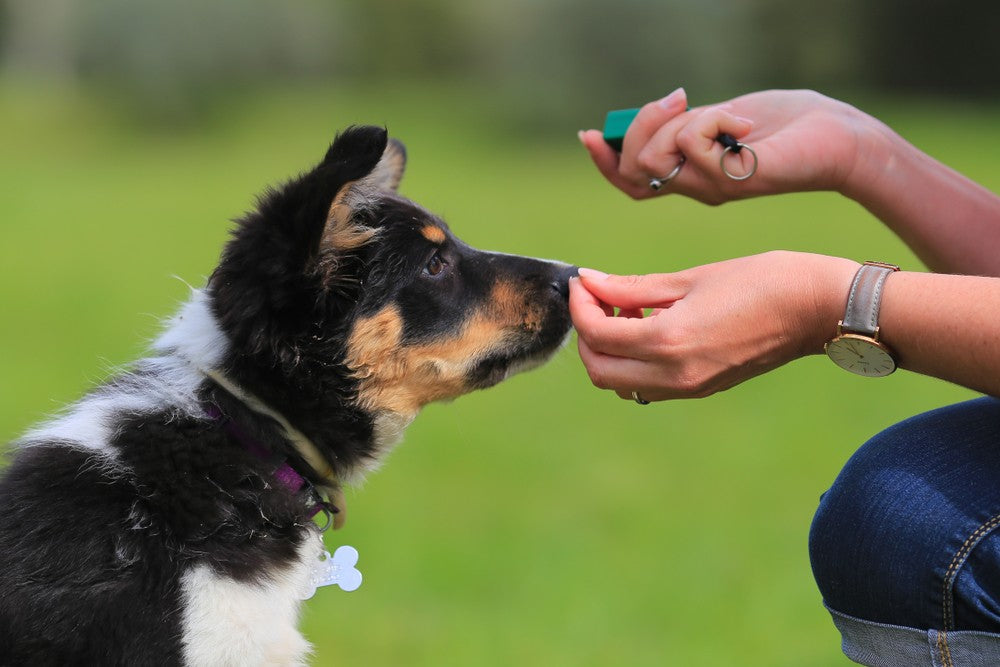
Dog Training Tips for Obedience: Mastering Canine Conduct
Share
Welcoming a furry friend into your home is an exciting journey filled with love, playful moments, and the occasional challenge. As health-conscious pet owners, ensuring our dogs are well-behaved is not only about maintaining peace in our homes but also about keeping our dogs safe and happy. In this comprehensive guide, we will delve into dog training tips for obedience that will help you cultivate a harmonious relationship with your pet.
Before diving into these tips, it's important to understand that dog training is a gradual process requiring patience, consistency, and understanding. The objective is not just to have a dog that follows commands but to nurture a bond built on trust and mutual respect.

Understanding the Basics of Dog Training
Dog training is an art and a science. It involves understanding your dog's behavior, communicating effectively, and employing techniques that promote desired actions. The key to successful obedience training lies in knowing your dog's personality and tailoring your approach accordingly.
Positive Reinforcement Techniques
One of the most effective methods in dog training for obedience is positive reinforcement. This involves rewarding your dog for good behavior, which encourages them to repeat the action. Rewards can be in the form of treats, praise, or playtime. This method not only promotes good behavior but also strengthens the bond between you and your dog.
When using positive reinforcement, timing is crucial. The reward should immediately follow the desired behavior to help your dog associate the action with the reward. For more insights on using positive reinforcement, check out this [expert guide on dog training](https://www.akc.org/expert-advice/training/expert-tips-for-dog-training/).
Consistency is Key
Consistency plays a vital role in training. Ensure that commands are consistent in wording and tone. This helps your dog understand what is expected of them. Consistent training schedules also aid in reinforcing lessons learned.
The Importance of Socialization
Socialization is another crucial aspect of obedience training. Exposing your dog to different environments, people, and other animals can significantly improve their behavior. It helps reduce fear and anxiety, making them more adaptable to new situations.
For health-conscious pet owners, socialization is not only about obedience but also about ensuring your dog's mental well-being. A well-socialized dog is less likely to develop behavioral issues such as aggression or excessive barking. Read more about managing barking in dogs in this [article](https://petzooli.com/blogs/all-our-posts/dog-training-tips-for-barking).
Setting Realistic Goals
Setting realistic goals is essential in any training program. Understand that some behaviors may take longer to master and that each dog learns at their own pace. Celebrate small victories and remain patient through setbacks.
Utilizing Professional Help
Sometimes, despite your best efforts, training can hit a plateau. In such cases, seeking professional help can be beneficial. Professional trainers can provide tailored advice and strategies to address specific issues. They can also help if your dog exhibits aggressive behavior. For more on this, explore our [tips for handling aggression in dogs](https://petzooli.com/blogs/all-our-posts/dog-training-tips-for-aggression).
Creating a Healthy Lifestyle
For health-conscious pet owners, ensuring that your dog leads a healthy lifestyle is paramount. Regular exercise, a balanced diet, and routine veterinary check-ups are crucial components of a healthy lifestyle that complements obedience training.
Physical activity not only keeps your dog fit but also mentally stimulated. Incorporating training into daily walks or playtime can enhance learning and retention. For tips on beginner training routines, consider this [guide](https://petzooli.com/blogs/all-our-posts/dog-training-tips-for-beginners).

Maintaining Patience and Positivity
Training your dog is a journey that requires patience and positivity. Celebrate progress, however small, and maintain a positive outlook. Remember, a happy and healthy dog is a well-behaved dog.
FAQs
Q: How long does it take to train a dog for obedience?
A: The time it takes can vary depending on the dog, the consistency of training, and the methods used. Some dogs may learn basic commands in a few weeks, while others may take several months.
Q: Can older dogs be trained for obedience?
A: Yes, older dogs can learn new commands. While it may take more time and patience, with consistent training and positive reinforcement, older dogs can learn obedience skills.
Q: What should I do if my dog is not responding to training?
A: If your dog isn't responding, consider evaluating your training methods, ensuring consistency, and possibly seeking professional help if needed. Sometimes a fresh perspective from a professional can make a significant difference.
Training your dog for obedience is a rewarding journey that strengthens your bond and enhances your pet's quality of life. For more detailed insights on training techniques and tips, visit [Best Friends Pet Care](https://bestfriends.org/pet-care-resources/dog-training-tips-dos-and-donts).
This article contains affiliate links. We may earn a commission at no extra cost to you.
